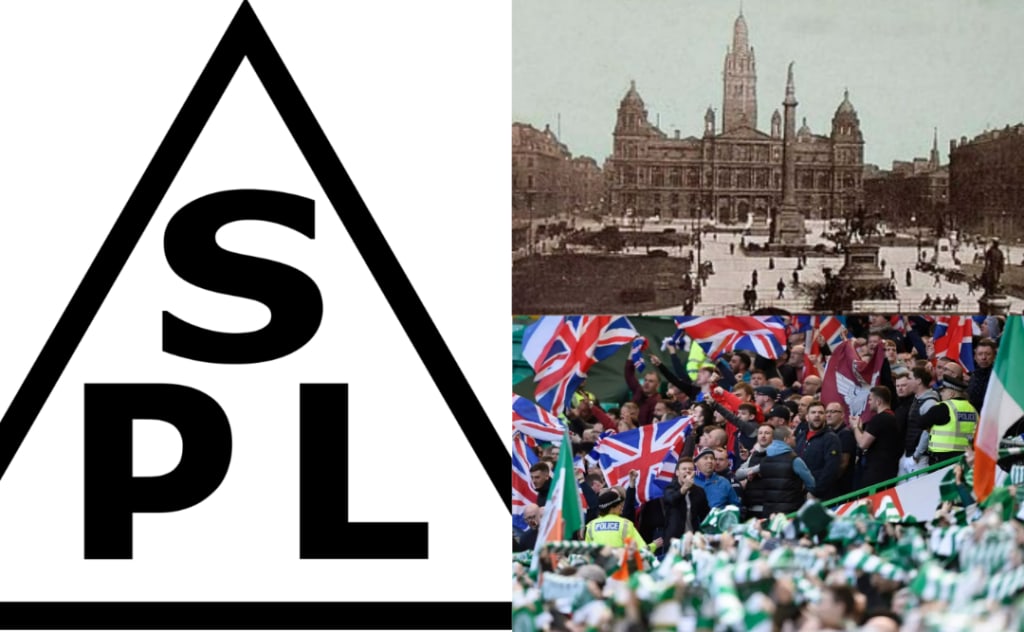
When it comes to issues such as sectarianism, bigotry and violence Glasgow of today is not without its issues- but to take into the context of how far the city has come you have to look at how today’s problems pale in significance compared to those faced by our not so distant ancestors.
The closest the city has ever come to a civil war was in the mid 1930s when a sectarian, racist and fascist political party, that started out as a one man mission against Catholics and Irish folk, brought the country to its knees.
With razor gangs such as the Billy Boys and the Shamrock running the city’s soaring slums and violent crime statistics the worst for any major city anywhere in the world at the time, Glasgow was deemed a basket case and its issues widely ignored by mainstream political parties.
This created a political vacuum with many left without any outlet for their strong political beliefs.
But one man saw this as an opening and decided to pour some petrol onto the bonfire for his own selfish gains and prejudices.
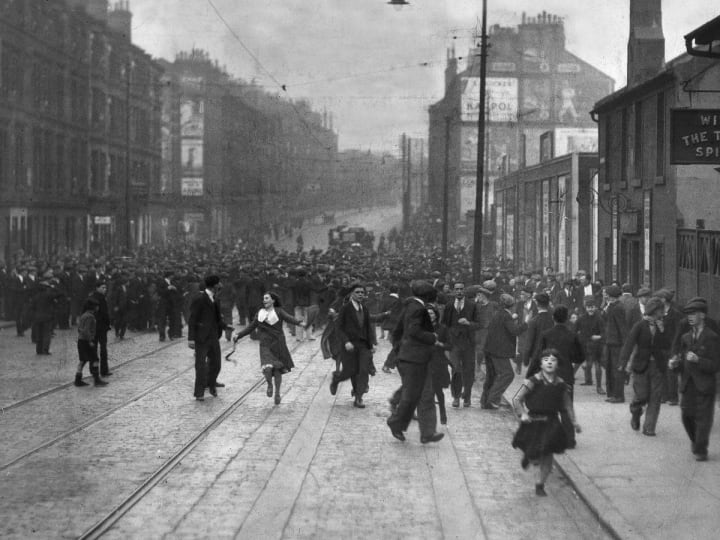
Alexander Ratcliffe was a staunch Orangeman and Protestant from the east of Glasgow.
As a youngster he was bullied at school and described as a loner with no real friends or any desire to even have any friends.
As a teenager he resented the fact his one time fully Protestant area was now “overwhelmed” with immigrants from Ireland.
We know this as fact because at the age of 15 he wrote an essay about watching the Irish “pour in like maggots” and objecting to their way of life and religion and how he wishes they would die a painful death.
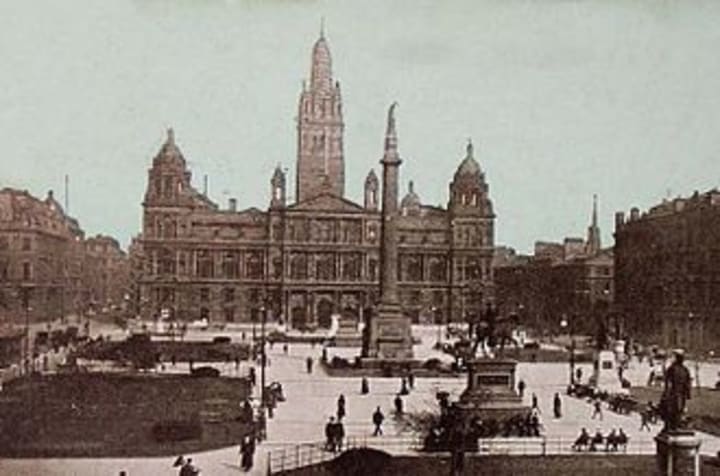
He saw them as the enemy and the main reason for the deterioration of his home area and made his life mission to make their lives hell.
In his late teens Ratcliffe joined the sectarian razor gang The Billy Boys in a bid to target Catholics and immigrants but was soon kicked out after being left with a massive slash to the face.
The other gang members decided he was too much of a liability when the going got tough and told him to ‘beat it’.
So he decided to take his bigotry and hatred into politics and he would soon hit Glasgow like a storm.
First he joined the Scottish Fascist Party- but left two years later in disgust that their anti-Catholic and anti-Irish agenda was to moderate to start his own party.
The next year he founded and officially launched the SPL (Scottish Protestant League). A one man far right party with five main priorities:
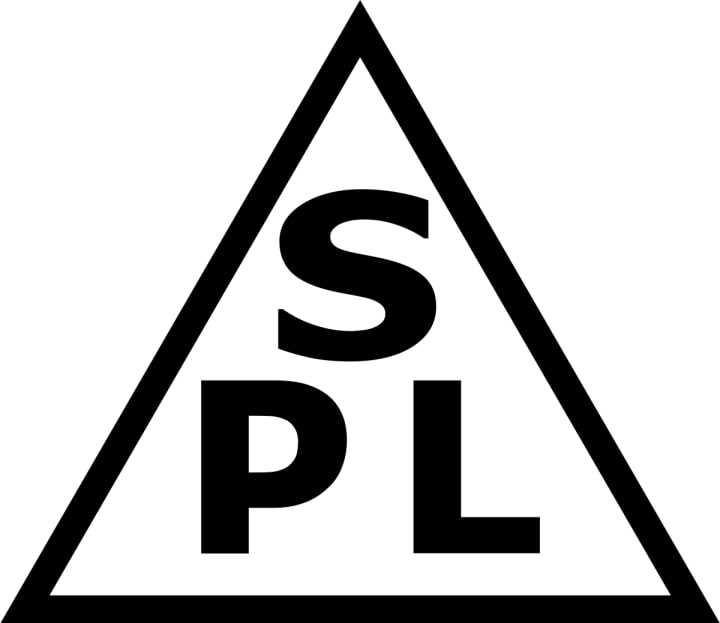
• Closing and banning all catholic schools
• Stopping all Catholic and Irish immigration into Scotland
• Deporting any Irish person on welfare or with a criminal record
• Banning immigrants from council houses
• Repatriating any UK citizen born a Catholic from Irish parents.
The SPL also backed a campaign to ban Celtic from waving an Irish tricolour at their home stadium in the Parkhead area of Glasgow, not far from where Ratcliffe grew up.
Football attendances in Scotland during the 1930s still hold world and European records and crowds of 100k were commonplace at Celtic Park, Ibrox and Hampden.
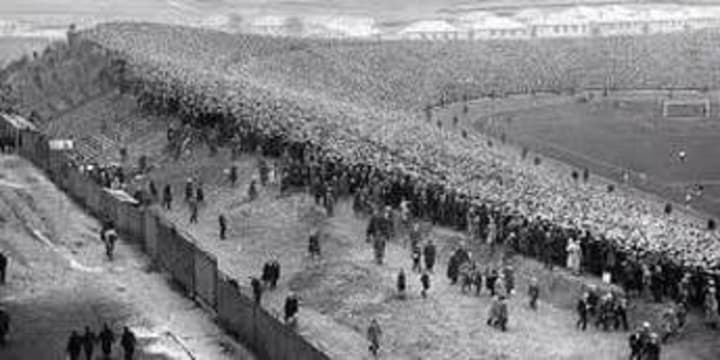
Ibrox Park would become a big and fruitful breeding ground for the SPL to gain new members and voters.
Ratcliffe knew making an enemy of Celtic and their fans and stoking the already fractious sectarianism between the two was a sure fire way to gather support.
As the SPL’s only candidate in their first election bid, Ratcliffe shocked the city by being elected in a long held Liberal seat in Dennistoun and made headlines that would see his stock rise among the Protestant and Loyalist communities throughout Scotland.
The next election they stood 11 candidates and got 5 elected before hitting their peak in 1934 when they stood a candidate in every Scottish seat and got a quarter (25%) of all Scottish votes along with 8 elected politicians on a platform purely of hatred, racism and bigotry.
It was a rapid rise to power from Ratcliffe who, less than a decade after forming, was the leader of the third biggest party in Scottish politics.
The SPL were now also supplying financial support for equipment, uniforms, propaganda material and legal aid to his former razor gang the Bridgton Billy Boys who in turn provided ‘security’ at the party’s rallies that would often end in a mass riot with protesters.
They declared the 1934 election as a “victory for the Protestant people” and a rejection of Catholicism.
To celebrate the “success” they held an Orange Walk through Glasgow that would be held over two days.
The walk attracted thousands of supporters and areas with a high Irish or immigrant population were targeted with vandalism and destruction.
However large groups of men Irish communities such as the Gorbals and the Garngad gathered to to fight back and launch retaliation attacks.
The first night ended in a mass riot throughout the city that left 3 dead and hundreds seriously injured.
For days later sporadic fights were breaking out throughout communities and quickly becoming destructive riots as word spread.
Churches, Chapels, Catholic schools and orange halls were all set on fire as the city literally burned with hatred.
However, when the violence finally died down days later and large parts of Glasgow left in ruins the SPL were quickly blamed and shunned among the Protestant community.
As a result of the riots the Church of Scotland came out to publicly condemn the party in what would be the final nail in their coffin.
With followers and party members deserting in droves the SPL were back to a one man band the following election with Ratcliffe losing his seat before closing down the party completely.
The would not be the end of his political career and he emigrated to Nazi Germany where he became a follower of Adolf Hitler and became fully fledged fascist and Nazi.
The Second World War would then break out and the sectarian issues of Glasgow were somewhat put to one side as communities stood together to battle a common enemy.
The SPL became the last far right party to make an impact in Glasgow with a mix of fighting Nazis in the war to the socialist rebuilding after, the city became firmly a left wing “red” city, a position that was solidified by a cruel and purposely anti-Scottish Tory government of 70s and 80s.
In a weird twist of fate the SPL has been credited with the long held electoral success of the socialist Labour Party in Scotland who initially made and established themselves as a political force after making big inroads in historically Tory seats when the SPL split the right wing vote.
Labour would go on to hold Glasgow with an iron grip until they famously lost what was left of their already decaying grass roots support after standing with Tories in 2014’s independence referendum and have now been replaced by the pro-independence and centre-left SNP as the city’s dominant force.
Becoming a major anti-semite, Ratcliffe is also described as being one of the first ever holocaust deniers.
He published a pamphlet called The Truth about the Jews, in 1943, and a series of articles in his newspaper Protestant Vanguard in 1945.
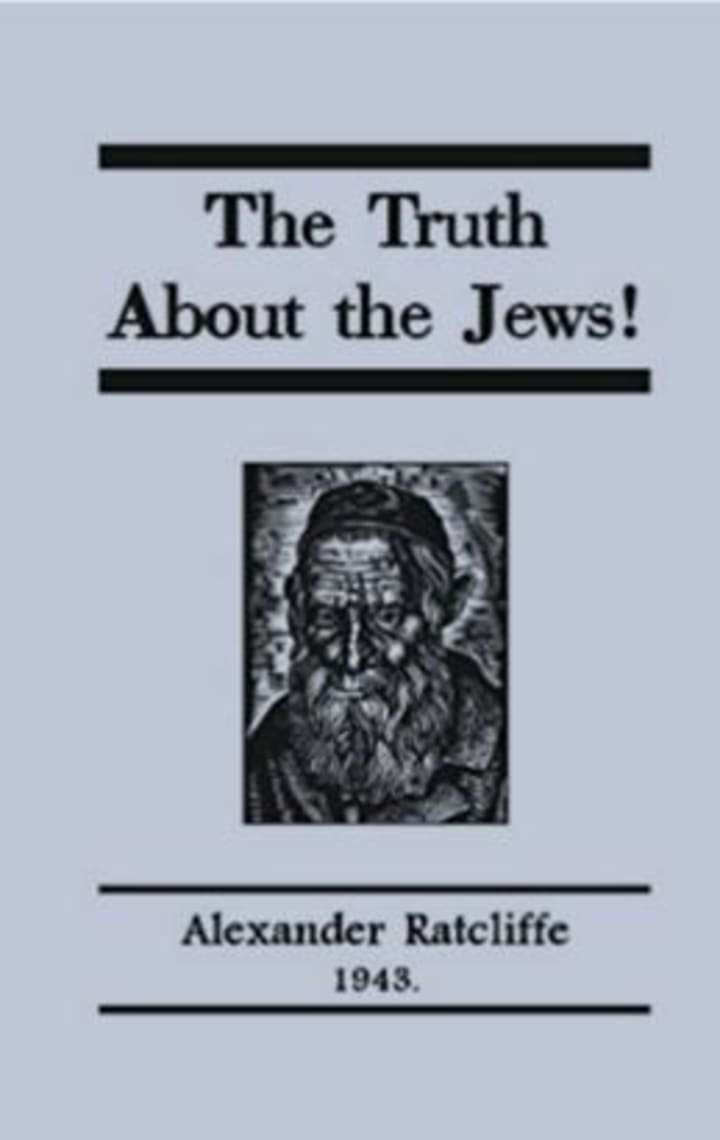
Ratcliffe went as far as to make the remarkable claim that, “There is not a single authentic case on record of a single Jew having been massacred or unlawfully put to death under the Hitler regime.”
Unsurprisingly Ratcliffe’s claims were met with anger and derision by the Jewish Chroncile, which described The Truth About the Jews as “the vilest antisemitic pamphlet yet produced in Britain, and it is pure – or rather impure – Streicher from beginning to end”.
After returning to Glasgow at the end of the war Ratcliffe died in mysterious circumstances in one of the city’s slums in 1947.
90 years later and the Irish tricolour still flies above Celtic Park as a symbol of their links to the Irish community in the east end of Glasgow.

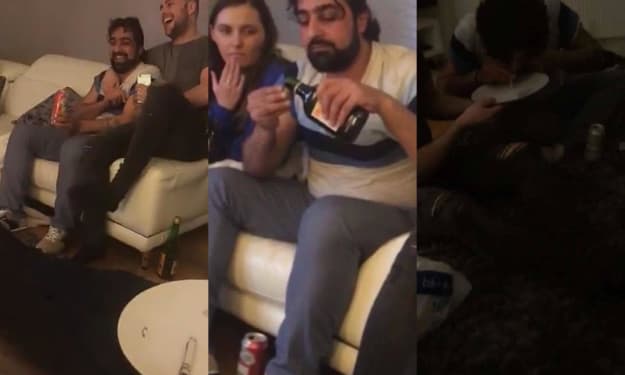
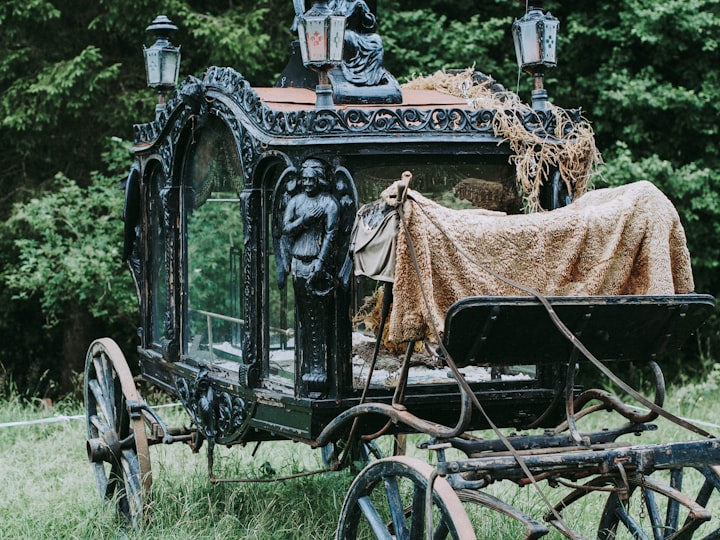


Comments
There are no comments for this story
Be the first to respond and start the conversation.